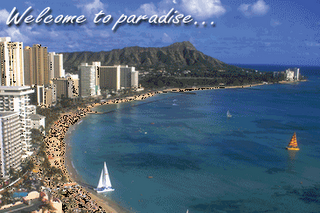Citable No. 1: Finding Hotels and Casinos Related, TTAB Grants 2(d) Summary Judgment in "CABANA BAR" Case
The first citable TTAB decision of 2007 arose out of a lackluster likelihood of confusion brouhaha. The Board granted Opposer's summary judgment motion, sustaining an opposition to the marks CABANA BAR and CABANA BAR & CASINO (in block-letter and design form) for casino services and for restaurant, bar and cocktail lounge services [BAR & CASINO disclaimed]. The Board found the marks confusingly similar to Opposer's mark CABANA, used for hotel services. Venture Out Properties LLC v. Wynn Resorts Holdings, LLC, 81 USPQ2d 1887 (TTAB 2007).

As to the marks, the Board understandably ruled that CABANA is the dominant term in each of the involved marks, and that the generic terms CASINO (sic! BAR?) and BAR & CASINO do not "significantly distinguish the marks overall, particularly if the services themselves are related."
Turning to the services, the Board found "no genuine issue that the services are closely related:"
"It is clear that opposer's 'hotel services' are highly similar to the services identified in all four of applicant's subject applications, in that hotel guests often dine in restaurants and drink in bars and lounges during their travels, as well as engage in recreational activities, such as gambling in casinos."
Third-party registrations covering hotel services and casino, bar, and restaurant services (for example, for the marks CAESARS PALACE, TAJ MAHAL, HARD ROCK CASINO, and HARRAHS), supported the Board's conclusion, as did the fact that Applicant itself owns a pending application for another mark for casino services and for resort hotel, restaurant, bar and lounge services. Moreover, the Board noted that in the past it has found hotel and restaurant services to be related.

Applicant Wynn argued that the channels of trade are different because its services "are marketed only to guests already staying at its resort hotel, whereas opposer's hotel services are marketed to guests interested in staying at a small, 'gay owned and operated' resort in Hawaii." However, the Board pointed out for the millionth time that the determination of likelihood of confusion must be made on the basis of the services recited in the opposed applications. Given the unrestricted recitation of services in the applications, "there is no basis for the Board to find that a genuine issue of material fact exists as to channels of trade."
The Board therefore found confusion likely and granted summary judgment, sustaining the opposition.
Text Copyright John L. Welch 2007.




0 Comments:
Post a Comment
<< Home